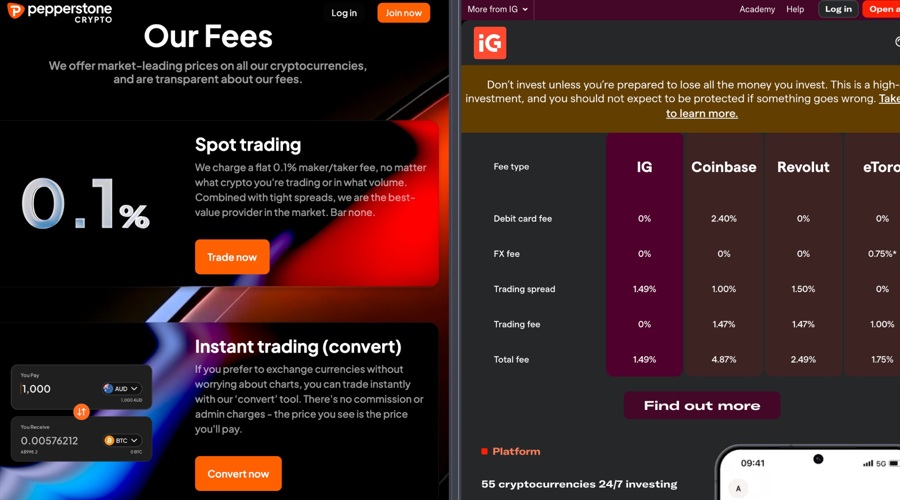Binance, the largest cryptocurrency exchange
Cryptocurrency Exchange
A cryptocurrency exchange is an online platform that supports the exchange of various currencies for a cryptocurrency or digital asset.Comparable to a generalized financial exchange, a crypto exchange’s core function is to permit and encourage the buying and selling of cryptos.This is accomplished by producing a stable trading environment suitable for traders nested through different locations around the world. Sometimes a crypto exchange may be referred to as a digital currency exchange (DCE) f
A cryptocurrency exchange is an online platform that supports the exchange of various currencies for a cryptocurrency or digital asset.Comparable to a generalized financial exchange, a crypto exchange’s core function is to permit and encourage the buying and selling of cryptos.This is accomplished by producing a stable trading environment suitable for traders nested through different locations around the world. Sometimes a crypto exchange may be referred to as a digital currency exchange (DCE) f
Read this Term by trading volume, is set to launch its services in Japan in June through the locally acquired Sakura Exchange BitCoin (SEBC).
According to a notice published on Friday, SEBC will terminate its operations at the end of May and will start to offer crypto exchange services under the tentative branding of Binance Japan in June.
As such, the local Japanese exchange requested its customers to liquidate their cryptocurrency holdings and withdraw fiat to their bank accounts. Otherwise, the platform will automatically liquidate all crypto holdings on June 5 and return the money to customers’ linked bank accounts.
Unlike other exchanges, SEBC does not support the withdrawal of crypto assets from its exchange platform. In addition, it will terminate all fiat and crypto deposits from the end of April. Currently, it supports trading with 11 trading pairs.
A Heavily Regulated Crypto Market
Binance bought 100 stakes in Sakura Exchange BitCoin last November, paving its way into the Japanese cryptocurrency market.
Japan is a heavily regulated market when it comes to offering cryptocurrencies
Cryptocurrencies
By using cryptography, virtual currencies, known as cryptocurrencies, are nearly counterfeit-proof digital currencies that are built on blockchain technology. Comprised of decentralized networks, blockchain technology is not overseen by a central authority.Therefore, cryptocurrencies function in a decentralized nature which theoretically makes them immune to government interference. The term, cryptocurrency derives from the origin of the encryption techniques that are employed to secure the netw
By using cryptography, virtual currencies, known as cryptocurrencies, are nearly counterfeit-proof digital currencies that are built on blockchain technology. Comprised of decentralized networks, blockchain technology is not overseen by a central authority.Therefore, cryptocurrencies function in a decentralized nature which theoretically makes them immune to government interference. The term, cryptocurrency derives from the origin of the encryption techniques that are employed to secure the netw
Read this Term. Exchanges need local licenses to provide services, and also new listings need approval from the Japan Virtual Currency Exchange Association. Based in Tokyo, SEBC is regulated by the Japan Financial Services Agency (JFSA); thus, the acquisition cut the requirement for Binance to obtain a fresh Japanese license to operate in the country.
The acquisition of SEBC came a year after Japan’s FSA issued a warning against Binance for offering services in the country without any authorization. At the time, the Japanese regulator flagged other top exchanges like Bybit.
Meanwhile, Binance has been facing a few regulatory setbacks recently. The Australian financial market regulator canceled the local license of Binance following an investigation into the exchange’s derivative business. Further, the US Commodity Futures Trading Commission brought a lawsuit against Binance and its CEO, alleging an array of regulatory violations.
Binance, the largest cryptocurrency exchange
Cryptocurrency Exchange
A cryptocurrency exchange is an online platform that supports the exchange of various currencies for a cryptocurrency or digital asset.Comparable to a generalized financial exchange, a crypto exchange’s core function is to permit and encourage the buying and selling of cryptos.This is accomplished by producing a stable trading environment suitable for traders nested through different locations around the world. Sometimes a crypto exchange may be referred to as a digital currency exchange (DCE) f
A cryptocurrency exchange is an online platform that supports the exchange of various currencies for a cryptocurrency or digital asset.Comparable to a generalized financial exchange, a crypto exchange’s core function is to permit and encourage the buying and selling of cryptos.This is accomplished by producing a stable trading environment suitable for traders nested through different locations around the world. Sometimes a crypto exchange may be referred to as a digital currency exchange (DCE) f
Read this Term by trading volume, is set to launch its services in Japan in June through the locally acquired Sakura Exchange BitCoin (SEBC).
According to a notice published on Friday, SEBC will terminate its operations at the end of May and will start to offer crypto exchange services under the tentative branding of Binance Japan in June.
As such, the local Japanese exchange requested its customers to liquidate their cryptocurrency holdings and withdraw fiat to their bank accounts. Otherwise, the platform will automatically liquidate all crypto holdings on June 5 and return the money to customers’ linked bank accounts.
Unlike other exchanges, SEBC does not support the withdrawal of crypto assets from its exchange platform. In addition, it will terminate all fiat and crypto deposits from the end of April. Currently, it supports trading with 11 trading pairs.
A Heavily Regulated Crypto Market
Binance bought 100 stakes in Sakura Exchange BitCoin last November, paving its way into the Japanese cryptocurrency market.
Japan is a heavily regulated market when it comes to offering cryptocurrencies
Cryptocurrencies
By using cryptography, virtual currencies, known as cryptocurrencies, are nearly counterfeit-proof digital currencies that are built on blockchain technology. Comprised of decentralized networks, blockchain technology is not overseen by a central authority.Therefore, cryptocurrencies function in a decentralized nature which theoretically makes them immune to government interference. The term, cryptocurrency derives from the origin of the encryption techniques that are employed to secure the netw
By using cryptography, virtual currencies, known as cryptocurrencies, are nearly counterfeit-proof digital currencies that are built on blockchain technology. Comprised of decentralized networks, blockchain technology is not overseen by a central authority.Therefore, cryptocurrencies function in a decentralized nature which theoretically makes them immune to government interference. The term, cryptocurrency derives from the origin of the encryption techniques that are employed to secure the netw
Read this Term. Exchanges need local licenses to provide services, and also new listings need approval from the Japan Virtual Currency Exchange Association. Based in Tokyo, SEBC is regulated by the Japan Financial Services Agency (JFSA); thus, the acquisition cut the requirement for Binance to obtain a fresh Japanese license to operate in the country.
The acquisition of SEBC came a year after Japan’s FSA issued a warning against Binance for offering services in the country without any authorization. At the time, the Japanese regulator flagged other top exchanges like Bybit.
Meanwhile, Binance has been facing a few regulatory setbacks recently. The Australian financial market regulator canceled the local license of Binance following an investigation into the exchange’s derivative business. Further, the US Commodity Futures Trading Commission brought a lawsuit against Binance and its CEO, alleging an array of regulatory violations.
Source link
















